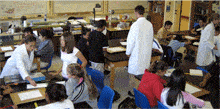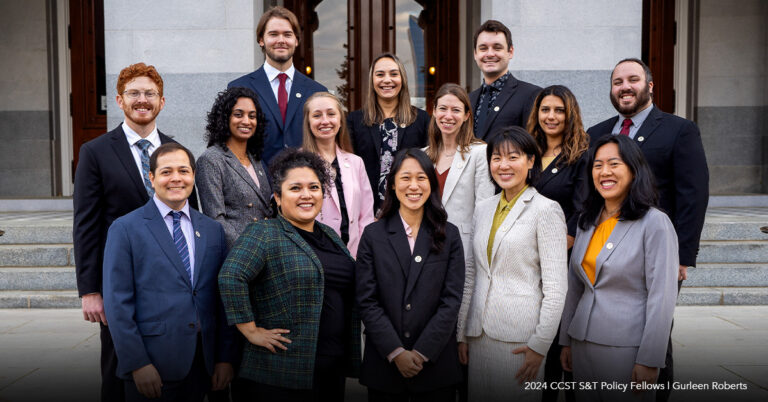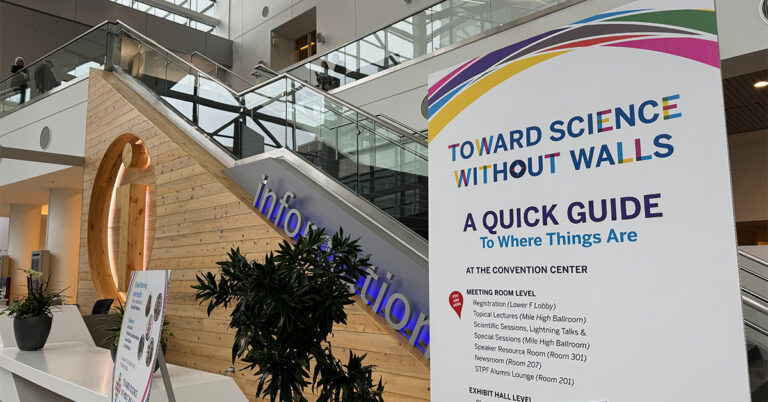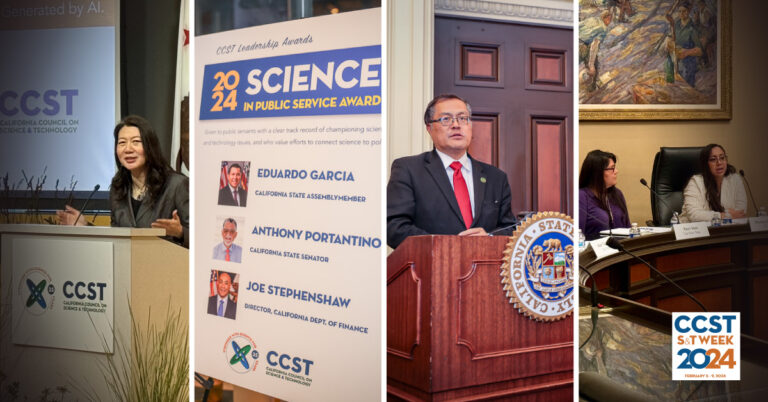Update: Applications for the CCST Science & Technology Policy Fellowship Have Closed
UCSB Brings Science to 8th Graders
October 8, 2007 | CCST Newsroom | Contact: M. Daniel DeCillis

The perennial struggle to encourage California’s students to pursue and succeed in the sciences is by now well-known. While important efforts are being made to bolster the number of well-prepared science teachers in the classroom, there are also programs in place to connect the university community directly with the K-12 system. One such program at UC Santa Barbara has been both helping encourage 8th grade students to succeed in science as well as provide valuable experience to prospective scientists on communicating.
The science outreach program, funded by the National Science Foundation, is called “Let’s Explore Applied Physical Science” (LEAPS). It aims to improve the skills of undergraduate and graduate students in communicating science to the public. As a central part of the program, it engages UCSB graduate and undergraduate “fellows” as instructors and mentors for exciting science projects in physical sciences in eighth and ninth grade classrooms. LEAPS establishes collaboration among fellows, school science teachers, and UCSB faculty scientists. The experience benefits the teachers and students, but also benefits the fellows who participate.
“LEAPS helps people-oriented science and engineering students thrive at UCSB by giving them the opportunity to share their enthusiasm for science with school children, while enjoying a close working relationship with teachers,” said Beth Gwinn, professor of physics at UCSB. “Outreach opportunities such as this are valuable for everyone concerned.”
The LEAPS program has been in place since 2002, with approximately a half-dozen fellows designing and participating in projects with eighth and ninth grade students. This year, seven fellows are taking part in the program, all graduate students with specialties ranging from biochemistry to optics.
“It has been rewarding for me to see the fellows’ confidence and ability to communicate grow through their participation in LEAPS,” said Gwinn. “The dedication and creativity of the teachers involved inspires my own enthusiasm for teaching at the university level.”LEAPS is funded by the National Science Foundation’s Graduate Fellows in K-12 Education (GK-12) program. GK-12 provides fellowships to enable talented students in science, math, and engineering to assist in K-12 schools. GK-12 was initially motivated in part by the 3rd International Mathematics and Science Study of achievement in primary and secondary education in 42 countries. The program aims to develop future research scientists, engineers, and educators with the experience and knowledge to be effective communicators to the public and mentors for K-12 schools. With the strong message of the 2005 report Rising Above the Gathering Storm, concerns about the science education have been reinforced. The NSF requested approximately $47 million in 2007 to support 915 fellows in programs such as LEAPS nationwide.






